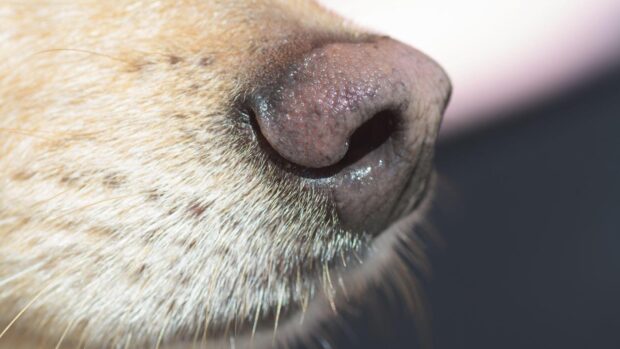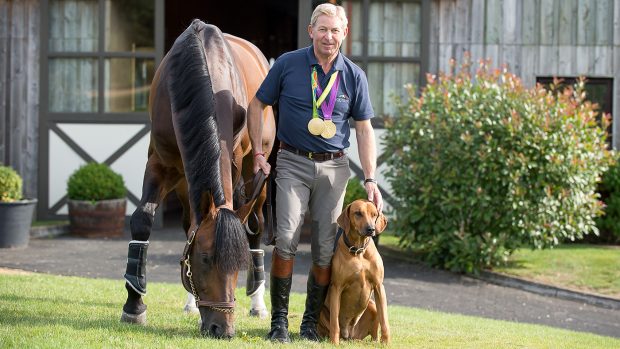A top showjumper who was banned for two years after her horse tested positive for a banned substance has won her appeal against the sanction as it was proved a driver’s urinating in the horsebox caused the result.
European team bronze medal-winning Swiss showjumper Nadja Peter Steiner’s ride Saura De Fondcombe tested positive for banned substance o-desmethyltramadol, a metabolite of painkiller tramadol, in a sample taken at a CSI3* in Tetouan, Morocco, 5-8 October 2017.
At first, Nadja believed the positive sample had been caused by the horse licking someone’s hand but later it was found to be caused by a driver urinating in the horse section of the horsebox.
At an FEI Tribunal hearing on 3 February 2020 Nadja told the panel that after she had won the grand prix at the show, she had to hand the horse over to a member of the organising committee for the duration of the prizegiving, some 20 to 30 minutes. There was a picture taken during this time showing the horse licking the staff member’s hand, which Nadja believed was the source of the contamination.
The FEI said as she had been unable to establish the source of the positive sample, a two-year suspension was imposed, due to end on 21 May 2021. She was fined 7,500 Swiss francs (£6,131) and ordered to pay 2,000 francs in costs.
On 16 March Nadja appealed the decision to the Court of Arbitration for Sport (CAS). The CAS arbitrator was told a support person on Nadja’s team, who drove the horses to Morocco, had taken tramadol for back pain relief. The driver confessed to urinating in the horse area of the lorry, and could not say he did not do so in the vicinity of the stables – but he could not remember with certainty.
On arrival in Morocco, because the stables were not ready, the horses were held on the horsebox for more than two hours, where they were fed and watered. The leftover hay was moved from the horsebox to the stables, so the contaminated hay was accessible to the horse for an extended period of time.
The arbitrator was told the driver initially did not realise his actions could have caused the positive dope test, and he feared for his professional reputation and job. Once he realised his intake of tramadaol and urination could have caused the positive sample, he confessed directly.
The CAS report states that Nadja has been on the Swiss national team for four years and is acquainted with anti-doping rules, and that she provided statements explaining her daily procedures to prevent contamination at home and at shows. While support personnel should be aware of the risk of human to horse cross contamination, the driver was not educated on the specific risk of such contamination, his job does not involve any handling of the horses, and it would have been “difficult” for Nadja to have expected the driver to urinate near the horse.
The FEI accepted that Nadja had established on a balance of probability how the substance had entered the horse’s system, namely through ingestion of contaminated hay after the driver urination following his intake of tramadol. A spokesman said as Nadja was able to provide a “plausible explanation” for the source of contamination, it was concluded she had no fault or negligence for the positive test. As a result the FEI entered into an agreement with her to eliminate the suspension and fine.

Rider blames horse licking show staff member’s hands for positive dope test
The rider said staff at the event were not properly instructed or supervised

Accidental contamination rules under review as riders ‘live in fear’ *H&H Plus*

Subscribe to Horse & Hound magazine today – and enjoy unlimited website access all year round
The CAS accepted the agreement reached between the FEI and Nadja in its decision on 18 June, so the suspension was lifted with immediate effect.
Under the FEI prohibited substances list, a controlled medication is a substance that is used regularly to treat horses, but which must be cleared from the horse’s system by the time of competition, while a banned substance is one that is prohibited at all times.
“Because of the presence of the banned substance in the horse’s system, which was not disputed, the horse’s results at the event remain disqualified,” said the spokesman.
We continue to publish Horse & Hound magazine weekly during the coronavirus pandemic, as well as keeping horseandhound.co.uk up to date with all the breaking news, features and more. Click here for info about magazine subscriptions (six issues for £6) and access to our premium H&H Plus content online.





